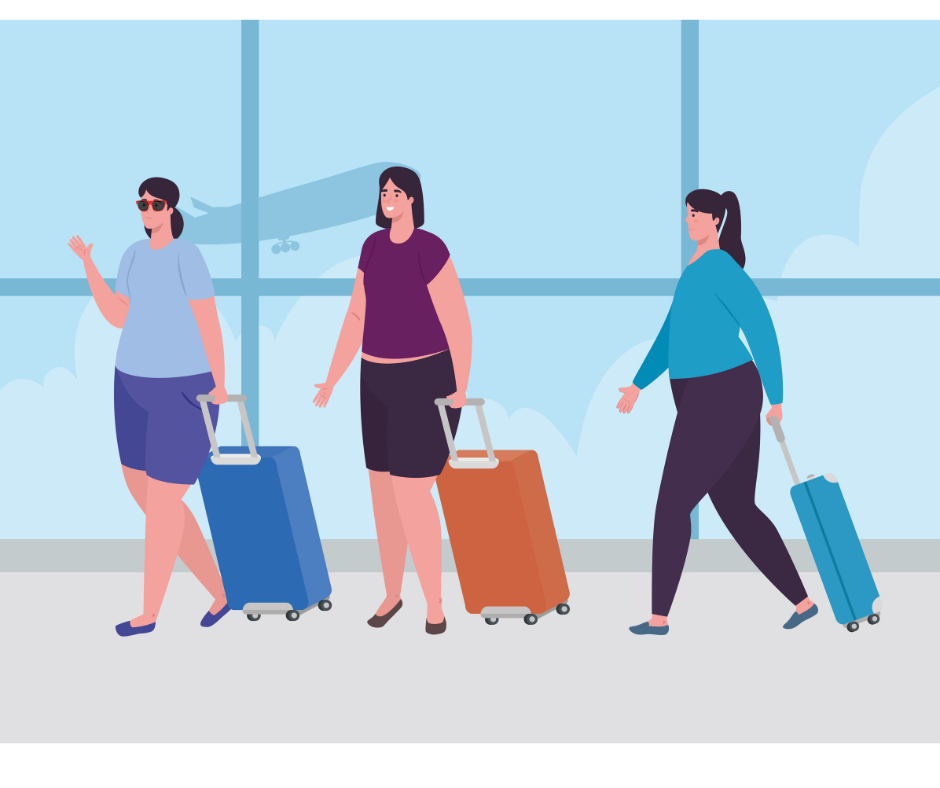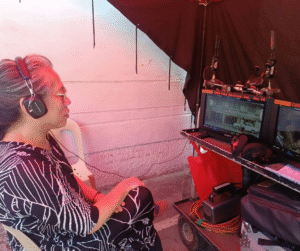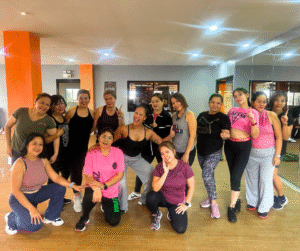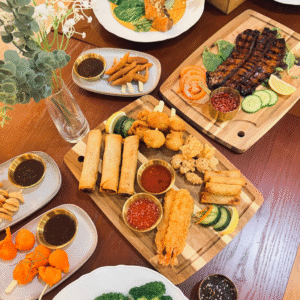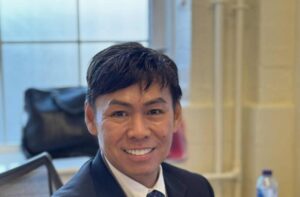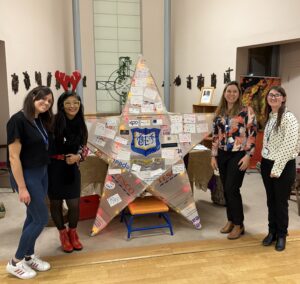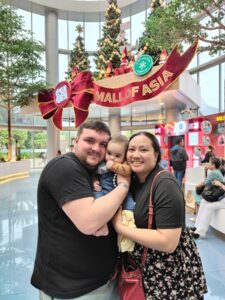Sponsored content by Our Place Is Here
By Liezel Longboan
Did you know that Prince William and Prince Harry had a Filipino nanny who looked after them for many years? Even Piers Morgan has acknowledged that a Filipino works for him, presumably as a domestic worker.
Apart from nurses and carers, domestic workers such as nannies and cleaners make up a significant proportion of Filipinos in the UK. Many of them were brought to the UK by their wealthy Middle Eastern employers through the overseas domestic worker visa. They often face serious abuses, including excessive working hours without rest, physical and sexual abuse, forced confinement, and very low salaries. In 2020, nearly 5,000 cases of maltreatment of overseas Filipino workers were reported from the Middle East where there are thousands of Filipino domestic workers.
Here in the UK, it is hard to find data on Filipino domestic workers. While we are aware that roughly 11,500 overseas domestic worker visas are issued to Filipino workers annually, this does not include those who are already here.
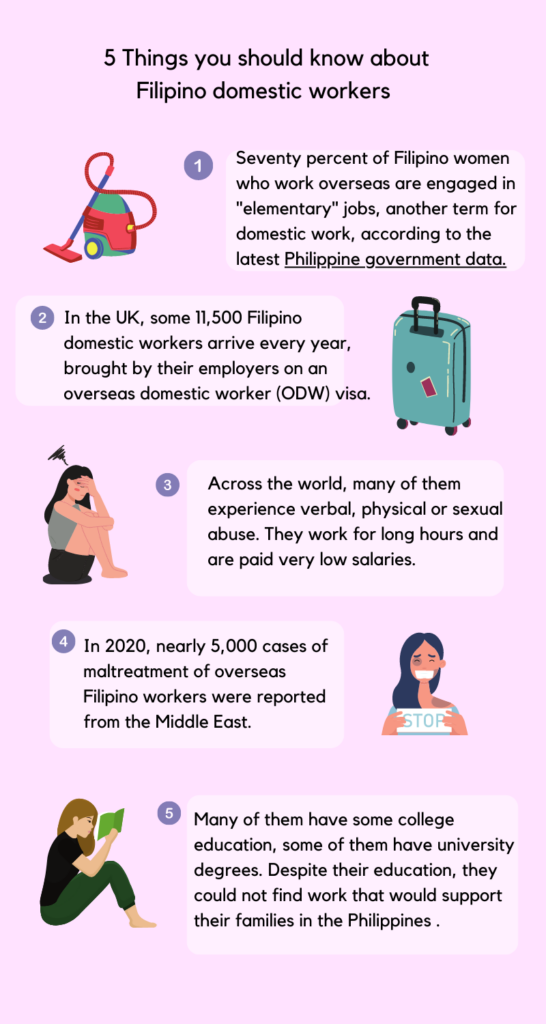
Filipino domestic workers make a huge contribution to British society: they enable bankers, business executives, solicitors, academics, doctors and other high profile employers to fulfil their important work. They look after children and the elderly, clean homes, attend to their employers’ personal needs, among many other tasks.
We would like to turn the spotlight on Filipino domestic workers whose contributions to the UK are often overlooked. Here, we share the profiles of five of our inspiring kababayans who have the courage to speak up on issues affecting domestic workers.
Cielo Tilan, 59
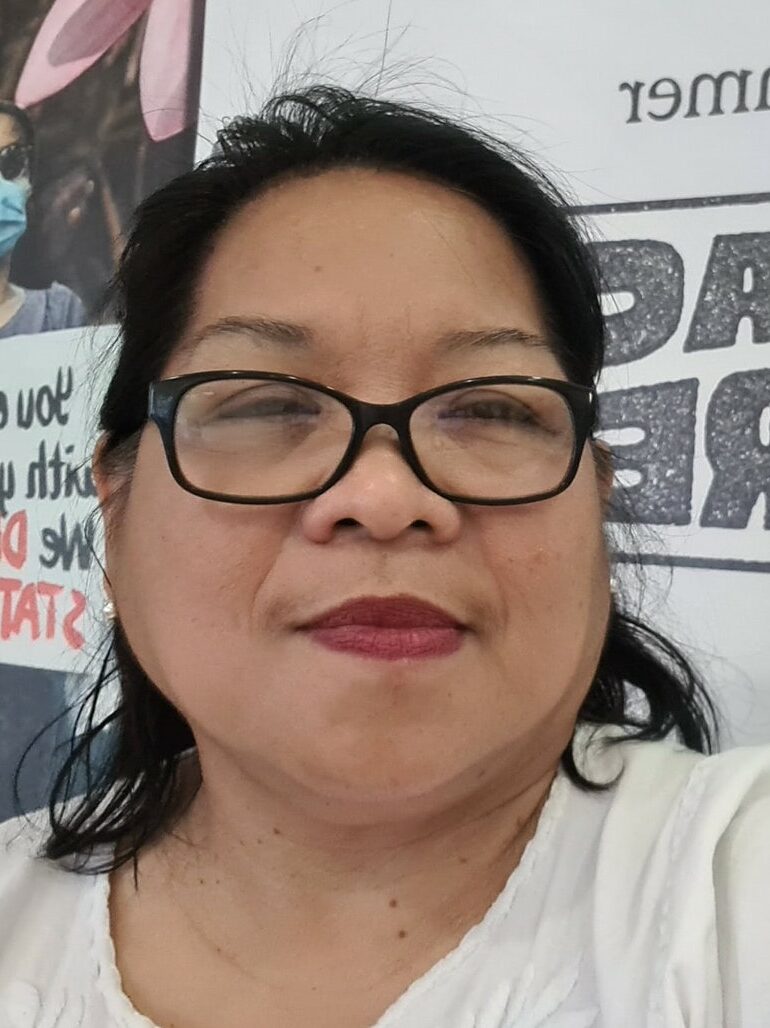
Cielo is one of the leading figures fighting for the rights of Filipino domestic workers in the UK. She is the vice president and one of the founding members of Filipino Domestic Workers Association (FDWA), one of two domestic workers’ groups supporting Filipinos in the UK.
Cielo decided to work as a domestic helper for a well-to-do family in the Philippines. In 2003, they brought her to the UK during their Christmas holiday. She recalls that when she was being interviewed at the British Embassy in Manila, the immigration officer informed her of her right to change employers once she was in the UK.
A single mother to three sons, she raised hogs and sold agricultural products in the Philippines before coming to the UK. But as she lived in the countryside where many people did not have jobs, her customers often bought items on credit and she was forced to close her business.
“If I had not known my rights before I came to the UK, I would have been a victim of slavery”, reflects Cielo.
When she co-founded FDWA back in 2012 in response to the change in the overseas domestic worker (ODW) visa, she was conscious that the lack of economic opportunities back home in the Philippines is the root cause of people leaving the country. “We want the Philippine government to provide decent jobs to Filipinos but we also want the UK government to see domestic work as work”, she says.
Florence Yilmaz, 56
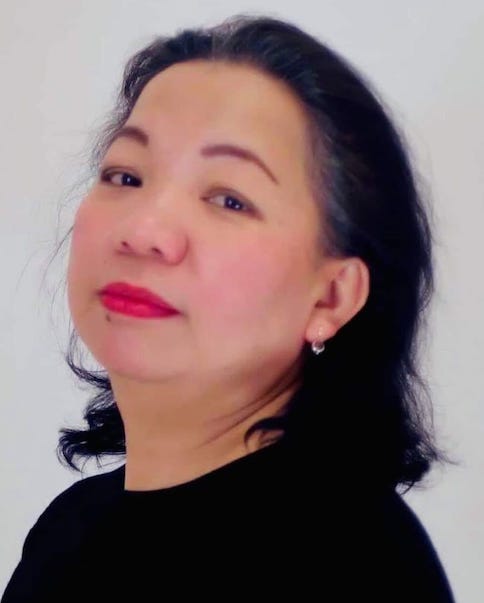
Florence completed a degree in accountancy in the Philippines before coming to the UK. She describes herself as an activist, imbibing the progressive values of church-based organisations where she worked as a bookkeeper and cashier for some years. She currently volunteers for Kanlungan and is one of the leaders of FDWA.
As an undocumented orker, she didn’t see her family for 14 years. “Not having your paper is very hard, it makes your world small. You cannot go out, you cannot travel to visit your family”, shares Florence.
When she got her leave to remain in the UK in 2015, she immediately booked a flight to the Philippines to visit her diabetic mum who she has been supporting financially. “I was so happy I managed to see her before she passed away”, she says.
Jenny Abenoja, 35
Jenny believes that poverty is not a hindrance to success so she became a working student to get a college degree. She immediately joined the civil service in the Philippines but her salary was not enough to support her family. She is an active member of The Voice of Domestic Workers and has joined the Future Voices, a programme that would train selected domestic workers to become campaigners themselves.
We share the last 5 lines of a poem Jenny wrote for her daughter who is in the Philippines.
While sleeping on my bed, drops of tears I can’t ignore.
My lovely little daughter, sorry I need to go.
Used plates are in the sink, tall grasses I need to mow.
Preparing those foods will be much more fun if they were meant for you.
Just always remember honey, that mommy really loves you.
Marigold Bayquen, 38
Marigold knows the hardships of being an undocumented immigrant. In 2013, she escaped from her overseas employers who brought her to the UK. She didn’t serve not just one, but three families, and was asked to sleep on the floor under a dining table. She knew she had to escape. As an undocumented worker, she struggled to find employers who would treat her well.
In 2018, she went through the National Referral Mechanism (NRM) to help find out if she was a victim of modern slavery and trafficking. While the first stage assessment found her to be a potential victim of enslavement, she is still waiting for the final conclusive decision if her claim has been accepted or not by the Home Office.
As a spokesperson of the Voice of Domestic Workers, she writes “I am a fearless frontline campaigner who is not afraid to have my voice heard by the Home Office”.
Wendy Nova, 41
Wendy planned on becoming a nurse but because her family could not afford the expensive tuition fees, she went for a two-year computer programming course. She worked so she could pay for her education.
To support her family, she decided to apply as a nanny and housekeeper in Saudi Arabia where she worked for three years. She is currently one of the trustees as well as the leader of the media and communication working group of The Voice of Domestic Workers, creating campaign graphics and videos for their social media accounts. She also writes their monthly newsletter.
Wendy believes that there’s no limit to what women can do. She says “…let’s not wait for opportunities to come, get up and let’s make them!”
Our Place Is Here is a campaign by a coalition of charities and community groups to raise people’s awareness on the lack of workers’ rights by Filipino domestic workers in the UK. It aims to build community support for their demands for a minimum wage or sick pay, among others. Read more about how you can support the campaign.
Find out how you can partner with Tinig UK to reach our Filipino readers.

